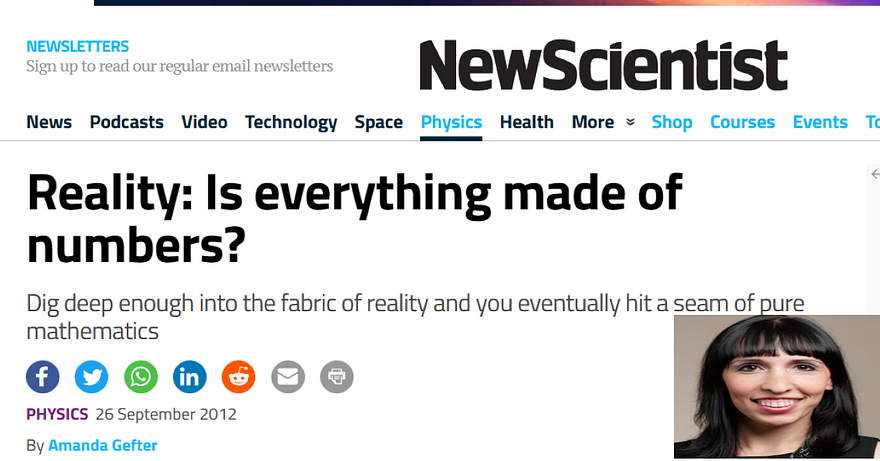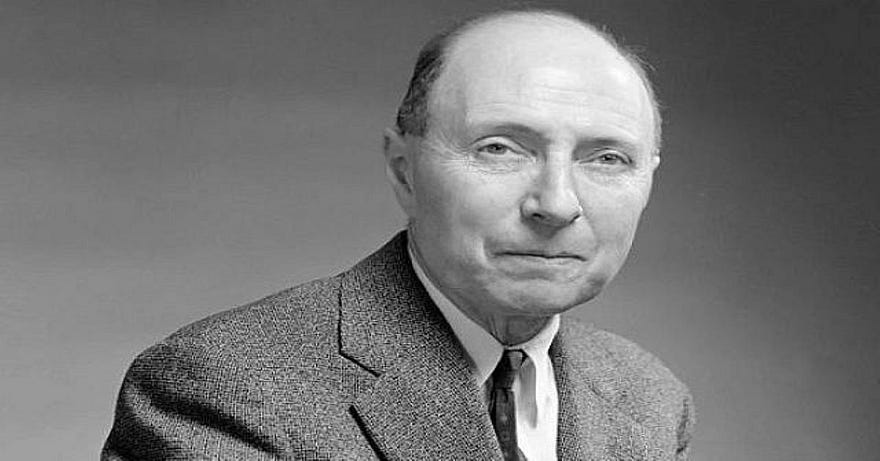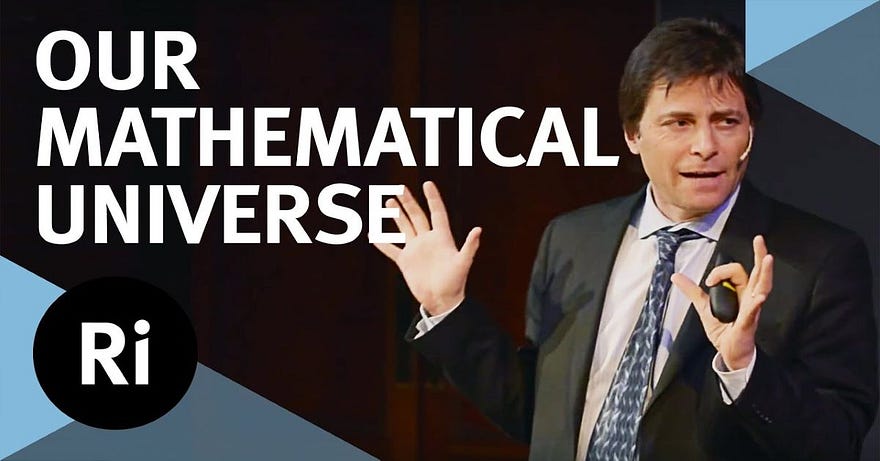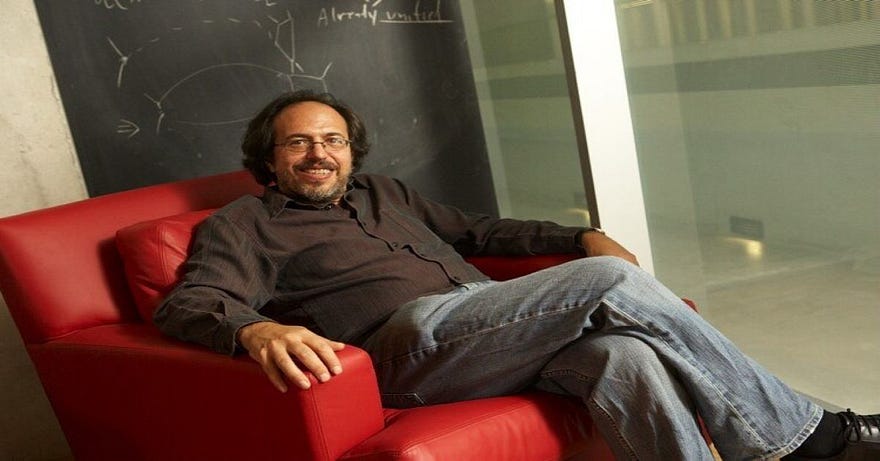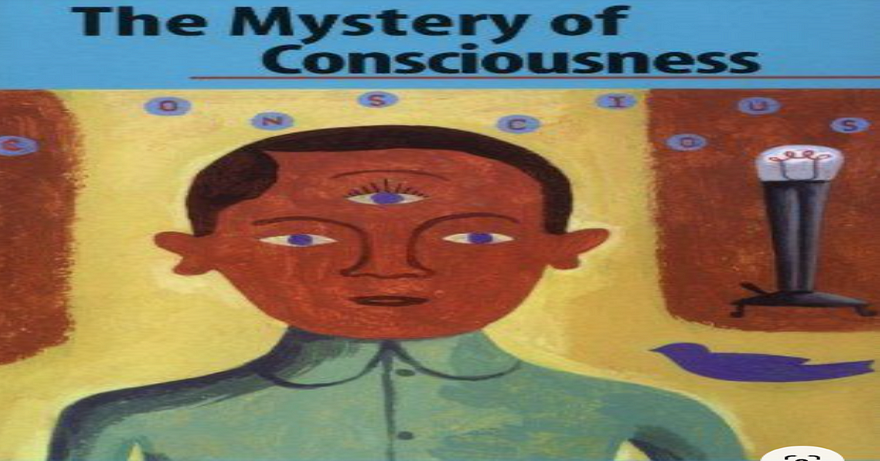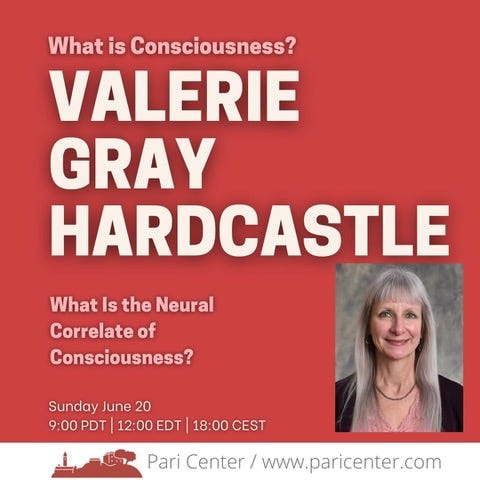The philosopher David Chalmers believes that there are answers — or just possible answers — to his questions about conscious experiences. But what if there aren’t any answers — or even any possible answers? So perhaps it’s fair to say that Chalmers simply assumes that there are answers to his questions.
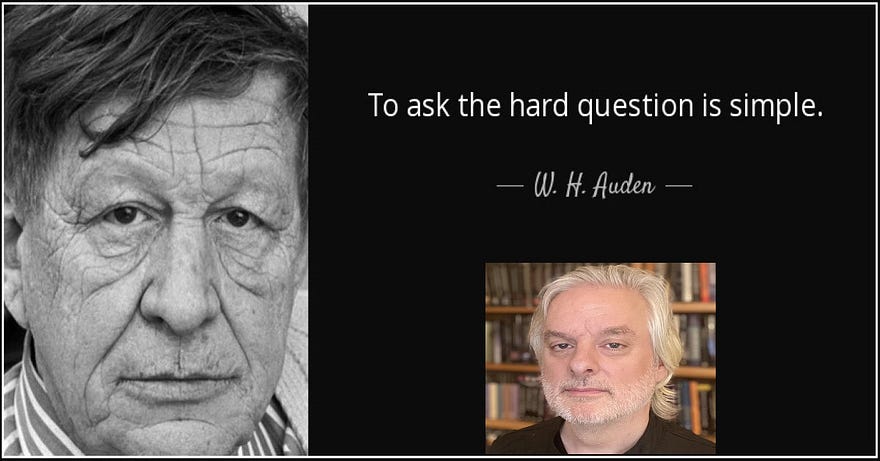
Firstly, David Chalmers isn’t asking for answers which refer to anything physical, functional, structural, etc.:
(1) He isn’t asking for the “physical correlates” of experiences.
(2) He isn’t asking for the causal and physical connections between the brain and experiences — or any connections between experiences and anything physical.
(3) He isn’t asking for the functional (or otherwise) underpinnings of experiences.
(4) And he isn’t asking for any evolutionary answers either.
As Chalmers is keen to stress, all the physical things referred to above can be instantiated, and the experiences may still not occur. Alternatively, all these things can be instantiated and the experiences could still be very different.
[All David Chalmers’ questions in this essay come from his book, The Conscious Mind: In Search of a Fundamental Theory.]
Question (or Questions) 1
“At a more basic level, why is seeing red like THIS, rather than like THAT? It seems conceivable that when looking at red things, such as roses, one might have had the sort of color experience that one in fact has when looking at blue things. Why is the experience one way rather than the other? Why, for that matter, do we experience the reddish sensation that we do, rather than some entirely different kind of sensation, like the sound of a trumpet?”
[The source of this passage can be found here.]
Surely there are evolutionary and physical reasons as to why “seeing red is like THAT”. However, these reasons won’t satisfy Chalmers.
In other words, whatever reasons are given, Chalmers can still ask:
But why is experience E like THAT?
From an evolutionary perspective (perhaps also from a purely chemical and sensory perspective too), it wouldn’t make sense to hear a trumpet when looking at a red rose. Indeed, there’s an entire evolutionary history of sound and its relation to species’ sensory systems that can explain all this.
Yet Chalmers would say that none of that would explain the redness of a red rose or the trumpety sound of a trumpet when being blown. And it wouldn’t explain why we see red rather than hear the sound of a trumpet when we look at a (red) rose.
So exactly why is it conceivable that human beings could, say, smell dogshit when they look at a red rose?
What, exactly, is being conceived here?
More strongly, are these things actually being conceived in the first place?
After all, if I ask:
What, exactly, are you conceiving?
And Chalmers answers:
I’m conceiving that it’s possible to smell dogshit when I look at a red rose.
Then that’s neither an answer nor an explanation. Chalmers (or anyone else) would simply be uttering a single statement.
Chalmers will of course argue that he’s not talking about imagining smelling dogshit when he looks at a red rose. He’d claim that he’s simply conceived that this is possible. (Here’s one Cartesian account of this distinction.)
To repeat. Chalmers isn’t claiming to be carrying out any acts of imagination in which when he looks at a red rose he smells dogshit. He’s claiming that it’s conceivable that when he looks at a red rose, he could smell dogshit.
But isn’t that conceiving-imagining distinction a difference which doesn’t really make a difference?
[In the following, the panpsychist Philip Goff commits himself to this distinction: “The zombie argument is generally known in the academic philosophical literature as the ‘conceivability argument.’ I think this is something of a misnomer, as it suggests that the argument has something to do with what can be imagined.”]
Alternatively, Chalmers is also saying that he wants to know why we don’t smell dogshit (or see blue) when we look at a red rose.
Yet there may be evolutionary, structural, physical, etc. reasons for seeing red when looking at a (red) rose.
Now take this reformulation of Chalmers’ question:
Given that water is H₂O, why does it have this “particular nature”?
Chalmers would, of course, reject this parallel between H2O/water and physical states/experience.
Firstly, Chalmers would (correctly) say that water simply is H₂O. However, he’d also add that experience E isn’t brain state B — or any physical conglomerate. (Chalmers believes that E isn’t anything physical at all.) In other words, experience E is over and above any physical conglomerate C, whereas water isn’t over and above the molecule (or set of molecules) H₂O.
So the fact that Chalmers already believes that experience E isn’t physical means that he’s always free to ask his initial question. If E were physical, on the other hand, then his question would make less sense.
That said, even if experience E isn’t physical, then it may still the case that Chalmers’ question can’t be answered. It may be a brute fact.
[Chalmers, incidentally, accepts brute facts in other areas of science, philosophy and logic. So why not here? For example, Chalmers tells us that physics “does not tell us why there is [matter] in the first place”. So it may not be able to tell us why many properties in physics “have their nature”. Thus, such things are deemed to be — to use Chalmers’ own word — “primitive”. That is, they can’t be “deduced from more basic principles”.]
Of course we’d need to explain what brute facts actually are and why we should accept them. More relevantly, why should we accept that experience E’s nature is simply a brute fact?
So a (to use Valerie Gray Hardcastle’s term) “water-mysterian” can now ask:
Why does H₂O have its particular nature?
That is, he can also ask:
Why is H₂O wet and transparent?
Well, chemists, neuroscientists, physiologists, etc. can provide an answer to these questions.
Yet, as stated before, Chalmers wouldn’t accept the parallel between water and experience E. That is, chemists (along with neuroscientists, evolutionary theorists, physicists, etc.) can provide a physical, causal, structural, evolutionary, etc. story as to why water is wet and transparent. However, Chalmers will argue that no physical, causal, structural, biochemical, functional, etc. story will tell us why experience E has its particular nature (say, why it is red).
However, is Chalmers right to believe that the two cases aren’t at all parallel?
Now take this evolution- and sensory-based account of water’s transparency:
“Water is transparent because eyes first evolved in water. The range of the electromagnetic spectrum we detect corresponds to the spectrum for which water is transparent (absorbs the least). Had we evolved in mercury, we would think mercury is transparent and detect EM waves that pass through mercury.”
Yet this part-evolutionary account can still elicit a Chalmersesque question:
Yes, but why transparency?
So Chalmers can still ask his question after being supplied with a ton of such evolutionary and other physical (or chemical) reasons. After all, if there are evolutionary reasons as to why dogshit smells bad, then the question can still be asked as to why it smells bad or why it smells bad in that particular way.
Question 2
“When I open my eyes and look around my office, why do I have THIS sort of complex experience?”
Chalmers had to have some kind of “complex experience” when he looked around his office. And cognitive scientists, neuroscientists, etc. would happily answer his question — and do so in great detail. However, Chalmers will still ask:
“[But] why do I have THIS sort of complex experience?”
Again, the physical, causal, structural, etc. story about things in the world and their relations to experiences will always leave Chalmers unhappy because he can still ask his question.
Question 3
“Given that conscious experience exists, why do individual experiences have their particular nature?”
We have x and we have y. x and y are taken to be different things. This means that because y isn’t x, then we can always ask why x and y must be placed (or come) together or whether y really tells us everything about x.
However, what if x and y are one and the same thing under different modes of presentation? This would mean that any questions as to why x and y occur together, or why y is correlated with x, would make less sense.
Yet even if x = y, Chalmers could still ask his questions. That is, even if a conglomeration of physical conditions and particular experience were one and the same thing, then Chalmers could still ask why that experience is the way it is. So even if an identity were established, Chalmers could still ask his question.
************************************
Note: The H₂O/water and physical/experience comparison will be tackled in more detail soon.
My flickr account and Twitter account.







